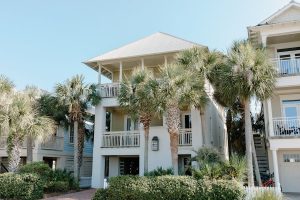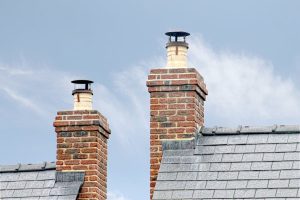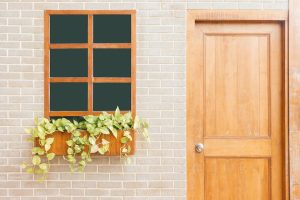10 Ways to Make Your Home Bird-Friendly

Birds are delightful creatures that make great pets. They are colorful, active, playful and many have the talent of mimicking the sounds they hear, hence keep the entire house entertained. Like every other pet, birds also have essential needs that you must care for to ensure the new feathered companion stays happy and healthy.
The most important task is to prepare your home for the new member. You don’t want the birdie to get herself in danger after she comes home.
So to help her feel comfortable and be safe around the house follow the checklist for these essential preparations:
The Household Items to Remove
Various products that we use in our homes can be dangerous for birds. Some of these include:
Aerosol sprays: The propellants in these sprays are toxic, and therefore all room fresheners and other sprays should never be used in the room where you will be keeping your bird.
Candles: Household items such as candles pose a threat to birds as the wicks contain heavy metals. The scented ones can cause respiratory inflammation, so it is best to remove all sorts of candles.
Pesticides: Avoid using pesticides in any form around your bird as if these are inhaled or ingested; they can put your bird’s life in danger.
Set-Up a Safe Cage
To make your bird cozy in the new home, make sure you provide a strong and sturdy cage. Add perches, toys, food and water bowls to it to keep your bird happy and healthy. Carefully decide a space where you would like to place the cage.
Remove All Toxic Plants
Many plants such as Daffodils, Lilies, Jasmin, Mistletoe, Ivy, Marsh marigold, etc. are toxic to birds and as a precautionary measure need to be removed from the house. No matter how vigilant you are, the birdie may get attracted toward these plants and get herself in danger. So it is best to use bird-safe plants such as Boston fern, spider plant, rubber plant, peppermint, chamomile, etc.
Cover the Windows
The most common cause of injuries in birds is window accidents. Due to the reflections of the sky or foliage, the window glasses seem inviting to our feathered companions. To prevent your pet bird from colliding in the windows, cover them with drapes or blinds when your bird is outside the cage. Keep checking the screens for any holes or loose wire and ensure they are safe. You can install decals, sun catchers and stickers on the windows or mark them using tempera pain or any other long-lasting substance to deter the birds.
Wrap Electrical Cords
Birds love to chew almost everything around the house. Things such as wire cords are hazardous since chewing on them can cause electrocution or burns. Either prevent your bird access to these cords or try using cord concealers or spiral cable wraps to cover these cords.
Prevent Smokes and Fumes
Birds have a sensitive respiratory tract that concentrates fumes and smokes hence these are hazardous for your avian friend. The most dangerous ones include the fumes from Teflon and other non-stick cookware (these may even instantly kill your bird) and self-heating ovens so make sure you keep your bird away from the kitchen at all times. Smoke from cigarettes, cigars, and tobacco is also toxic, so it is best to avoid smoking near your bird. Install carbon monoxide detectors and alarms in your house as a safety measure. Paints, cleaning supplies, disinfectants such as bleach, even essential oils are not considered safe for use around birds.
Install Child-Proof Locks in Cabinets
Even if you try to remove all hazardous products permanently, there are some you may need to use at times. In such cases, the safest option is to keep all such items locked in cabinets that are secured with child-proof locks so your mischievous birdie can stay safe.
Prevent Access to the Kitchen
The kitchen is among the rooms in the house that has multiple hazards. The food on the stove can attract your bird when it is hot and may end up giving your bird severe burns. Make sure you confine your bird in any other room when you do the cooking. Many human foods are toxic to birds such as meat, avocado, alcohol, chocolate, and dairy products so remove all of these when you let your bird lose. Keep all appliances such as the dishwasher, refrigerator, and freezer closed to prevent your bird from getting trapped inside. All sharp objects should be locked in drawers. Caffeine which is present in coffee, tea, and soda can be dangerous as it can cause the bird’s heart rate to increase and may even cause cardiac arrest. Other food items such as onions, garlic, fruit pits, apple seeds can be toxic to our feathered friends but are found in our kitchen; therefore it is best to keep our birdies outside this room.
Keep Your Bird Away from Water Bowls
Birds can drown in standing water so prevent access to all such places in the house such as the bathroom and kitchen. Keep the toilet cover down. Even water dishes pose a threat to our feathered friends; therefore, keep all such things out of your bird’s reach. If you have fish in your home, then be sure to cover the aquariums.
Heat Hazards
Apart from the kitchen, there are sources of heat present in other spaces around the house that can be extremely dangerous. Fireplaces and heaters, for instance, are at high temperatures so keep your bird inside the cage when using any of these. Halogen bulbs can also get quite hot so make sure you only allow your bird access once the bulbs cool off.
Other than that to keep your bird safe and healthy you can follow safety measures such as avoiding the use of any topical products; only use water to spray your birds.
Oils and petroleum products may put your birdie at the risk of hypothermia, diarrhea, dehydration, or pneumonia.
Wash your hands before touching your bird after handling chores such as grilling meat, handling charcoal or even scrubbing the grill.
Since the summers have begun in the U.S., take essential steps to keep your bird cool by placing her cage in an air-conditioned room. But make sure the A.C. doesn’t blow cold air directly on the bird.
Author :
Danica Boyd is a bird enthusiast and nature lover. She has been keeping pet birds for several years and now has tons of practical experience in caring for birds. She writes for the team behind https://www.birdcagesnow.com/.






